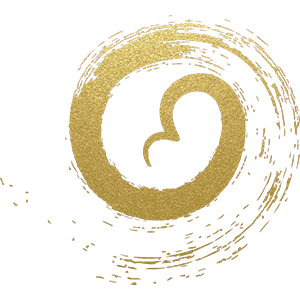Six part course
Human as Embryo
The Embryo in Us
A phenomenological journey through our prenatal life and what it means for becoming human
with Jaap van der Wal
Jaap van der Wal is a physician who specialised in the research and teaching of anatomy and embryology. He attempts to make a bridge between both medical biology and natural science, and a more spiritual view of man and nature.
In this course, Jaap gives his unique view on birth and prenatal life in which he follows a phenomenological approach searching for understanding in addressing key questions like ‘What are we doing as an embryo?”
In this course, Jaap gives his unique view on birth and prenatal life in which he follows a phenomenological approach searching for understanding in addressing key questions like ‘What are we doing as an embryo?”
COURSE CONTENT
Write your awesome label here.
course introduction
Human as Embryo - The Embryo in Us
Write your awesome label here.
class one
One mind and body are one
Is Prenatal Life about the Incarnation or Embodiment of our Soul/Spirit?
In this first class, we look at the two perspectives of anatomy – the body as a spatial
construct comprising of parts and organs – and the phenomenological
approach to embryology – our body as a process, a lifelong performance
in time.
- How do we actually exist as an embryo?
- What has the body, that is presented in our anatomy books, to do with the body that we are, and are aware of in our daily life?
- Are soul and body in duality?
- Can an embryo have a soul? If not, how come? If yes, what does it mean?
- How can we understand an embryo?
Write your awesome label here.
class two
The Language of the embryo
"Soul is pre-exercised in the forms of the body” (Erich Blechschmidt)
Differentiation
is a keyword for the embryo: our whole body is constantly being
differentiated into parts, tissues, cells; however our body is not the
product of its parts and organs. Our body is the opposite to this, it is
behaviour and language in forms.
- Embryo as the revelation of the body-mind-polarity in the functional organisation of a triune body. Man is Mind, Motion, Matter (AT Still).
- The animated body: consciousness as the opposition of life
- Brain and liver as examples of the two different ways we may embody
- What does the development of the embryo tell us about becoming human?
Write your awesome label here.
class three
In the Beginning
Where do we come from?
The
polarity of the egg and sperm creates, for some hours, a situation that
enables a first subtle connection between a spirit and a body. During
conception the conditions are created for a human soul or spiritual
impulse to connect with living matter.
- Challenges to the the traditional view of conception, including the view of egg and sperm
- Are we really the product of cells and organs like the anatomist seem to argue?
- Conception as a threshold of incarnation
Write your awesome label here.
class four
DIFFERENTIATION - FROM THE WHOLE TO THE PARTS
The First Week of Development
During our first week of development our mineral based existence shapes the conditions of our physical body. We do not develop from cells.
- The autonomous phase
- Nesting (nidation), a threshold of incarnation
- The placenta, our rooting body
- Notions of birth and death
Write your awesome label here.
class five
FROM ONE TO THREE, OR ONE TWO THIRD
The Psychosomatic Embryo
- The embodiment of the heart as the next threshold of incarnation
- Growing into a body - ‘coming from there to here’
- The primeval threefold body - ‘home’ for the soul and consciousness
- The notion of Soul - living 'in-between'
Write your awesome label here.
class six
Individuation and human individualisation
The Psychosomatic Embryo
- Exploring the threefoldness of the body - the polarity of Mind and Matter, Soul and Body
- The body axes or directions
- From animal to human
- What might embryonic development of a human individuality have to do with the evolutionary development of mankind?
-
Entry/intermediate level
-
Power Point Presentations
-
Demonstrations
-
Q and A with presenter
-
Six on hour classes
-
Life long access
-
Certificate of Attendance on request
Learning Outcomes
- Gain an insight into the phenomenological approach to conception and birth
- Understand the human embryonic development during the first few weeks
- Learn to see how the embryo can be considered an incarnating human being with personal expression
- Gain an understanding of the developing human body as dynamic equilibrium of polarities
who can this benefit
- Birth practitioners who would like to gain a deeper understanding of current embryology
- Anyone who would like to understand the ways in which their own primal beginnings may have shaped who they are today
join course
£139
One off payment
Includes :
-
Life time access to course content
-
Certificate of Attendance on request
course & Gold Membership
£199/yr
Billed annually
Includes :
-
50% discount on this course
-
Access to all our Live and Recorded classes for 1 year
-
Access to Monthly Support Groups
-
20% discount on all other courses
